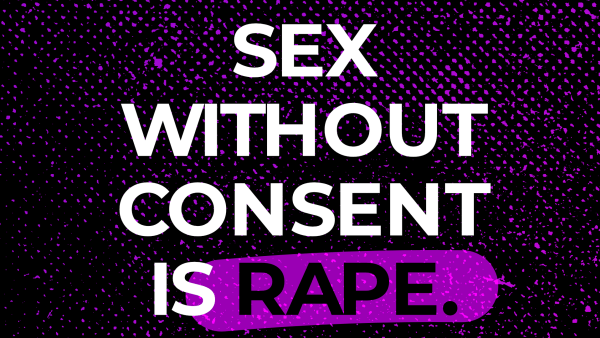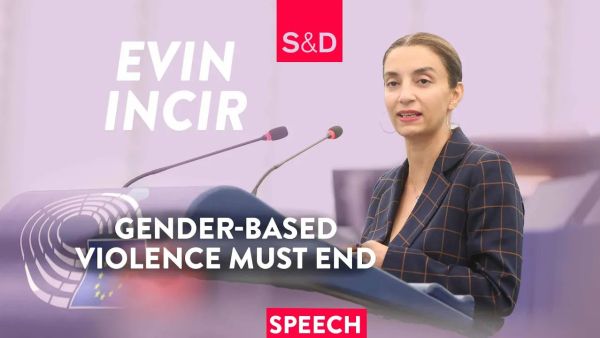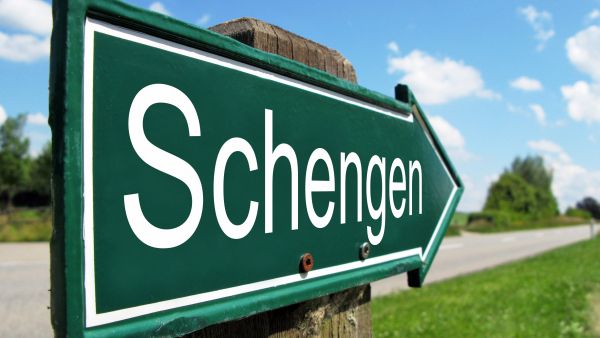Democracy in Hungary is raising once again strong concerns in the European Union. During a hearing organised today by the European Parliament committee on civil liberties, justice and home affairs, evidences were reported of a new escalation of attacks against fundamental freedoms and civil society, including audit raids against NGOs dealing with minorities' rights.
See the letter from the Commissioner for Human Rights - Council of Europe to the Hungarian government: https://wcd.coe.int/com.instranet.InstraServlet?command=com.instranet.CmdBlobGet&InstranetImage=2564455&SecMode=1&DocId=2164762&Usage=2
The European Parliament hearing follows the release of two new reports from the Organization for Security and Co-operation in Europe (OSCE) and the Council of Europe, both listing several threats to fundamental rights, media and political pluralism (see below).
MEP Tanja Fajon, S&D Vice-president, said:
"Today's hearing has once again underlined the dramatic effects of the changing legislative and political landscape in Hungary. Concentration of media, harassment of NGOs, lack of independence of the judiciary, populist rhetoric against minorities - these are but few examples of the authoritarian advance of this European government.
"All in all, this qualifies for a systemic threat to the rule of law rather than individual breaches of fundamental rights or miscarriages of justice".
MEP Birgit Sippel, S&D spokesperson on civil liberties, justice and home affairs, said:
"Now it is time to act! The Commission has to send a "rule of law warning" to PM Viktor Orban and the Hungarian Government, thus entering into a serious dialogue on the overall state of the rule of law in Hungary which could lead to the activation of an Article 7 procedure".
Péter Niedermüller, Hungarian S&D MEP, added:
"The respect of European values and laws is not an option but a legal obligation for every member state.
"We need to introduce a system granting power to the European Union institutions to check and ensure that all member states comply with the European values of democracy, as the one already existing for candidate countries wanting to join the European Union
"Our Group and the European Parliament have repeatedly called for the introduction of such a system, which unfortunately is still facing opposition by the Council".
Main findings of the Report of Commissioner for human rights of the Council of Europe, Nils Muižnieks after visited Hungary from 1 to 4 July 2014
Media freedom
• "... the mere existence of some provisions has a chilling effect on journalistic freedom. This is particularly true for the severe sanctions, including high fines which, although rarely imposed, appear to have forced a number of media outlets to engage in self-censorship.
• "The extensive administrative regulatory power of the Media Council in terms of media content also remains problematic. (...) notes that the political constellation in Hungary, characterised by a dominant majority, coupled with the wide-ranging powers of this body, leads to the fact that the Media Council is not seen as independent from political influence and control."
• "The Commissioner is also concerned about increasing threats to media pluralism. He sees measures such as the designing of the tax on advertising revenues and restrictions on political advertising as further attempts to curb media freedom in the country."
• "Finally, the Commissioner regrets that the Hungarian authorities did not take the opportunity of the reform of the Criminal Code to decriminalise defamation. On the contrary, the criminal regulation of defamation was recently tightened and the sanctions attached to it, increased."
The fight against intolerance and discrimination
• "The Commissioner is concerned at the deterioration of the situation as regards racism and intolerance in Hungary, with anti-Gypsyism being the most blatant form of intolerance, as illustrated by distinctively harsh manifestations..."
• "Despite positions taken by the Hungarian authorities to condemn antisemitic speech, antisemitism is a recurring problem, manifesting itself through hate speech and instances of violence against Jewish persons or property. Also of concern is the increasing influence of extremist rhetoric on the discourse of mainstream politicians and on society at large."
• "The dire housing situation of many Roma living in substandard and segregated settlements and the discriminatory impact on Roma of some measures taken at local level should also be addressed as a matter of priority."
• "The Commissioner is concerned at attempts to introduce legislation criminalising the “promotion” of homosexuality and to ban the annual Pride March in 2011 and 2012."
Human rights of immigrants, asylum seekers and refugees
• "(...) the Commissioner remains concerned about the infrequent use made of alternatives to detention in practice, the arbitrariness which characterises the asylum detention regime and the lack of effective judicial review."
• "Another issue of serious concern to the Commissioner is the detention of unaccompanied asylum seeking minors, despite the fact that it is prohibited by the law."
Full report: https://wcd.coe.int/com.instranet.InstraServlet?command=com.instranet.CmdBlobGet&InstranetImage=2662996&SecMode=1&DocId=2218468&Usage=2
Main findings of the Final Report of OSCE/ODIHR Limited Election Observation Mission on the Hungarian parliamentary elections, 6th April 2014
- 11 July 2014 -
• "The main governing party enjoyed an undue advantage because of restrictive campaign regulations, biased media coverage and campaign activities that blurred the separation between political party and the State."
• "(...) a number of key amendments negatively affected the electoral process, including the removal of important checks and balances. A new constitution and a large number of cardinal laws, including electoral legislation, were adopted using procedures that circumvented the requirement for public consultation. This undermined support for and confidence in the reform process."
• "Significant elements of the electoral system were altered, including provisions for the surplus votes of winning candidates in each constituency to be transferred to parties participating in the national, proportional contest. This change itself resulted in an additional six seats being allocated to the alliance of Fidesz-Hungarian Civic Union and the Christian-Democratic People’s Party."
• "(...) in the current political context, the process of appointing the election administration resulted in many OSCE/ODIHR LEOM interlocutors expressing a lack of confidence in their impartiality."
• "The 2010 amendments to the Act on Hungarian Citizenship provided large numbers of Hungarians living abroad with the opportunity to obtain citizenship, while changes to the electoral law allowed citizens without a permanent residence in Hungary to vote. Different registration and voting procedures for voters abroad, which depended on whether they had permanent residence in Hungary, undermined the principle of equal suffrage and was perceived by a number of OSCE/ODIHR LEOM interlocutors as an attempt to differentiate voting rights on partisan grounds."
• "The use of government advertisements that were almost identical to those of Fidesz contributed to an uneven playing field and did not fully respect the separation of party and State..."
• "Increasing ownership of media outlets by businesspeople directly or allegedly indirectly associated with Fidesz and the allocation of state advertising to certain media undermined the pluralism of the media market and heightened self-censorship among journalists. The limited amount of free airtime for candidates and absence of paid political advertisement on nationwide commercial television impeded electoral contestants’ access to campaign via the media..."
• "The OSCE/ODIHR media monitoring results showed that three out of five monitored television stations displayed a significant bias towards Fidesz by covering nearly all of its campaign in a positive tone while more than half the coverage of the opposition alliance was in a negative tone."
Full report: http://www.osce.org/odihr/elections/hungary/121098?download=true










